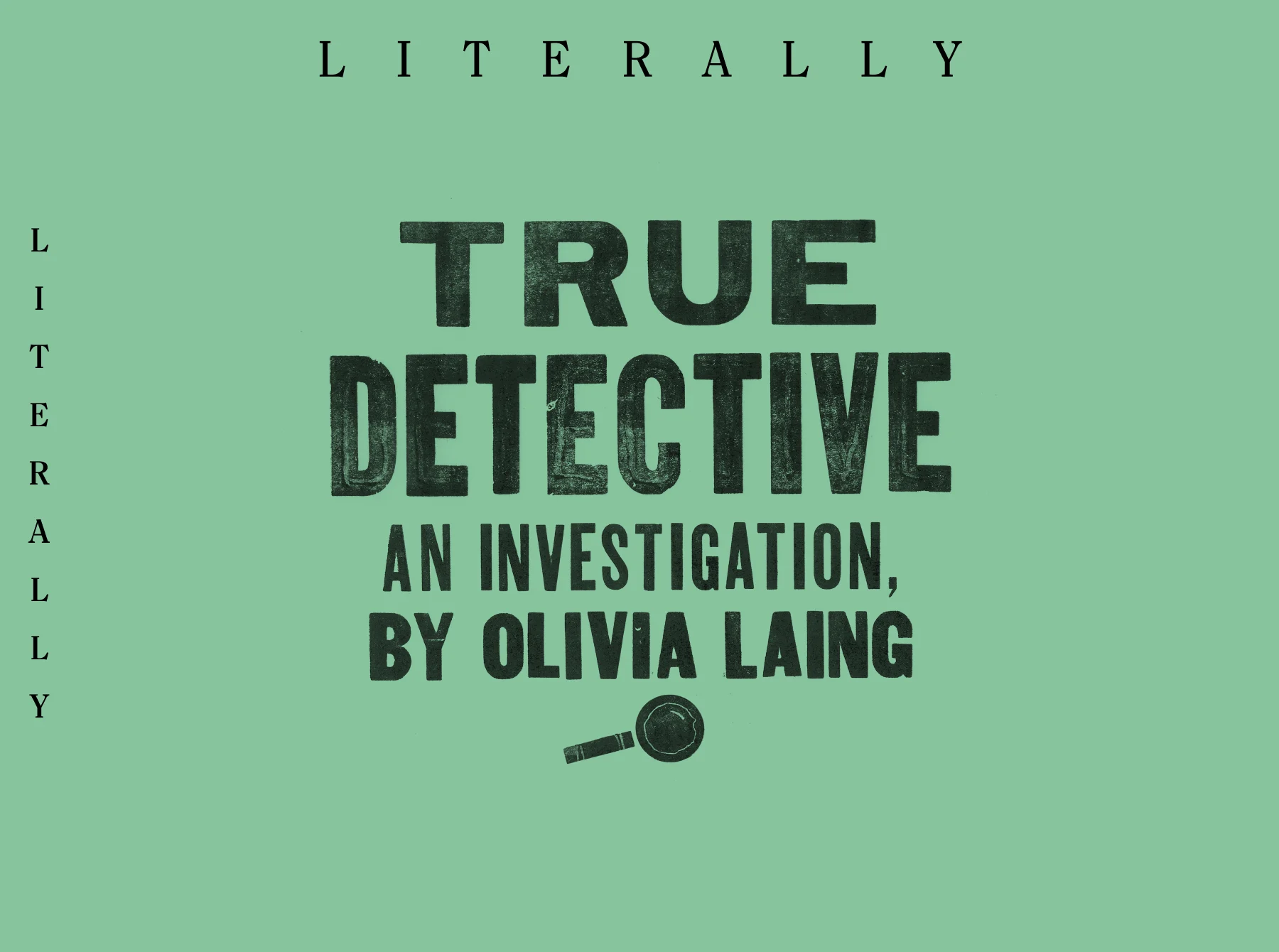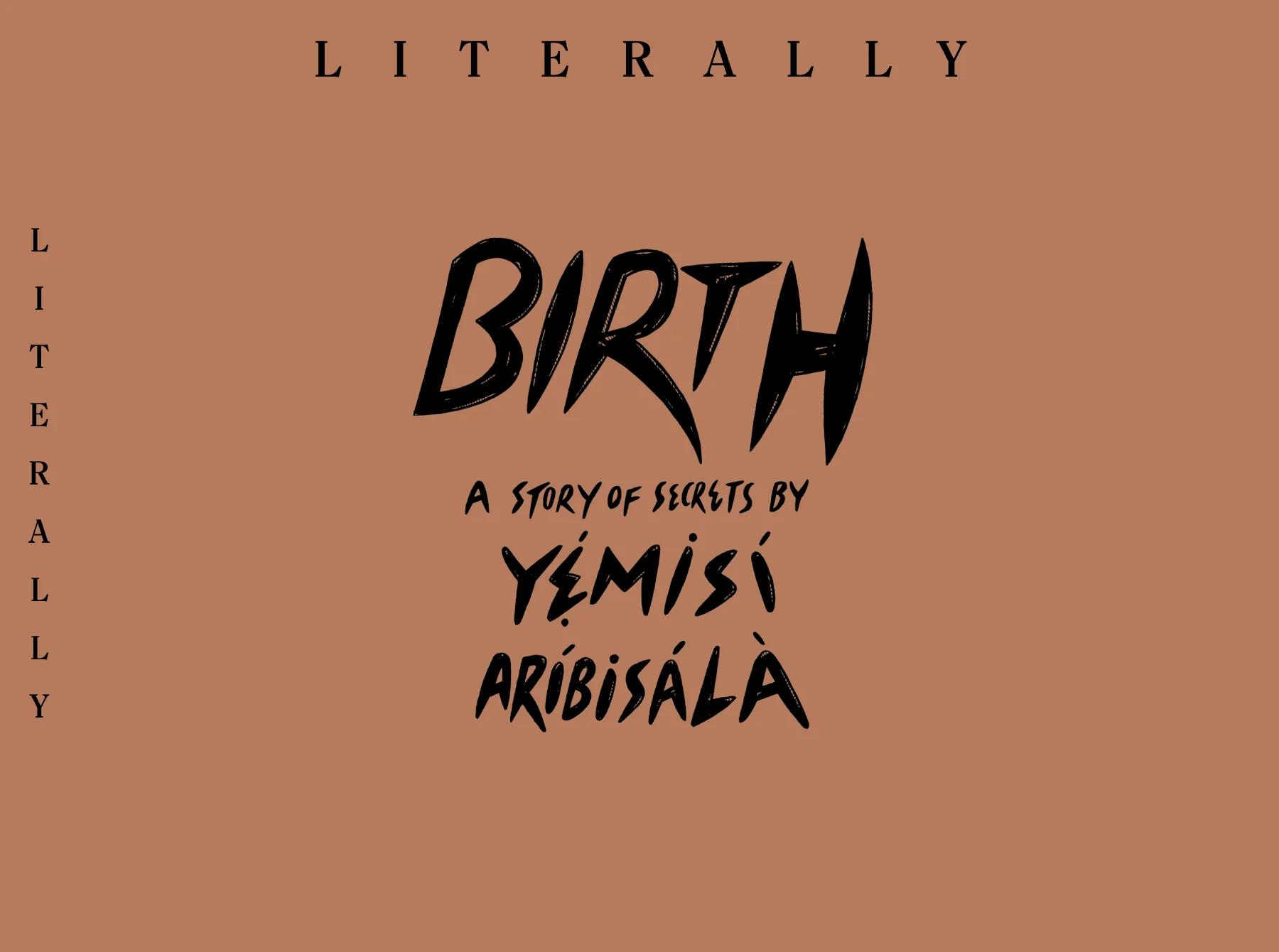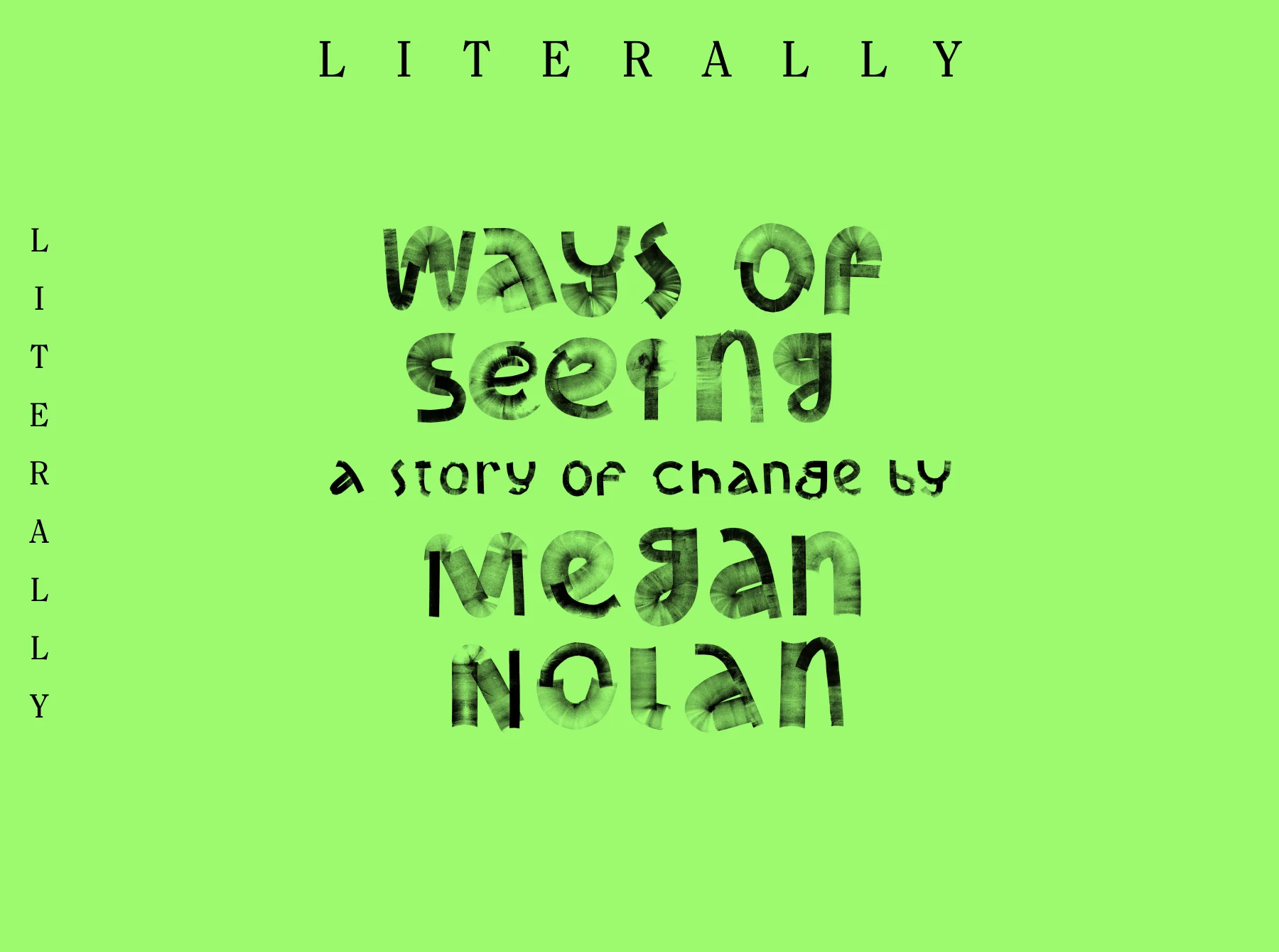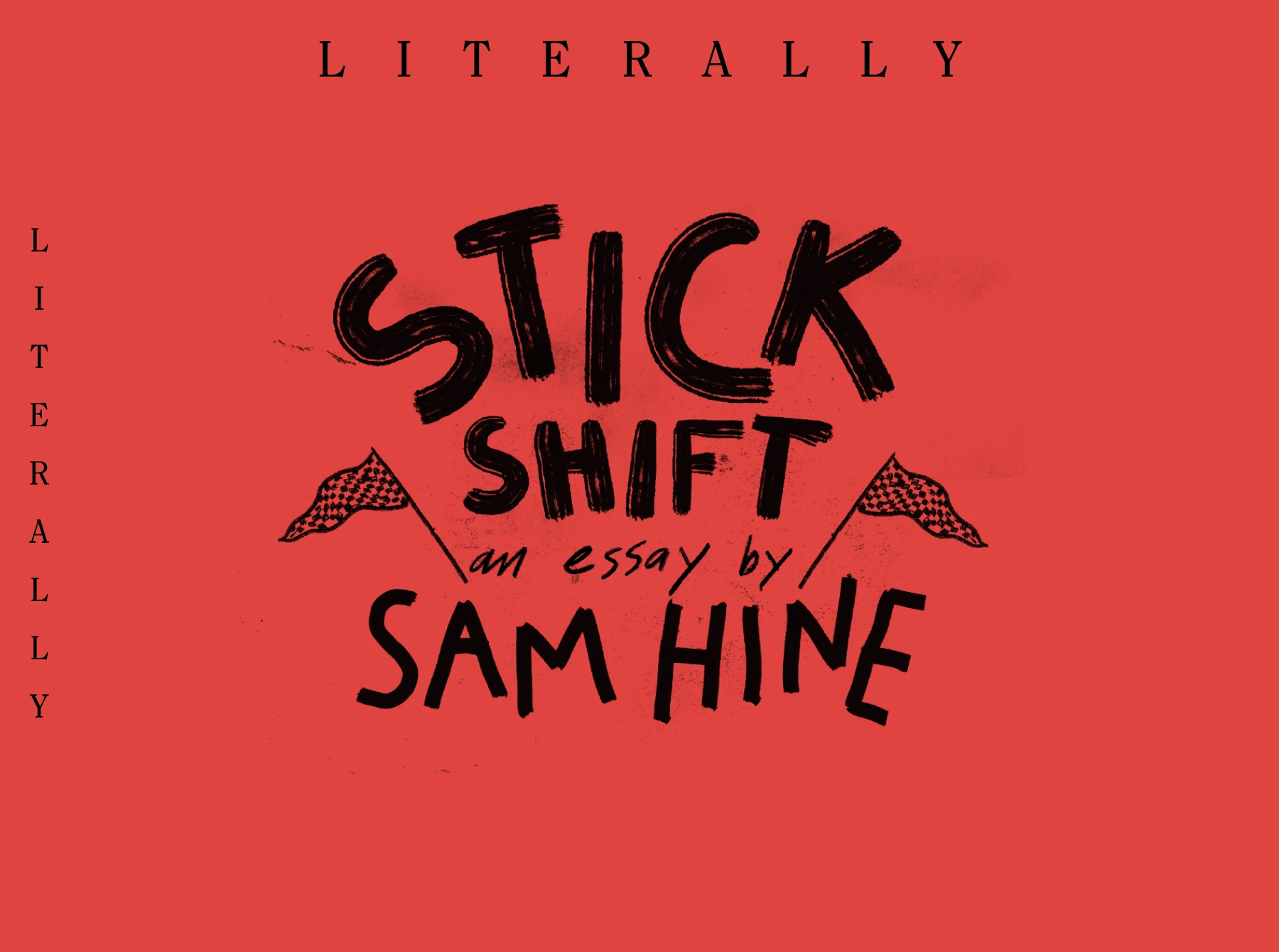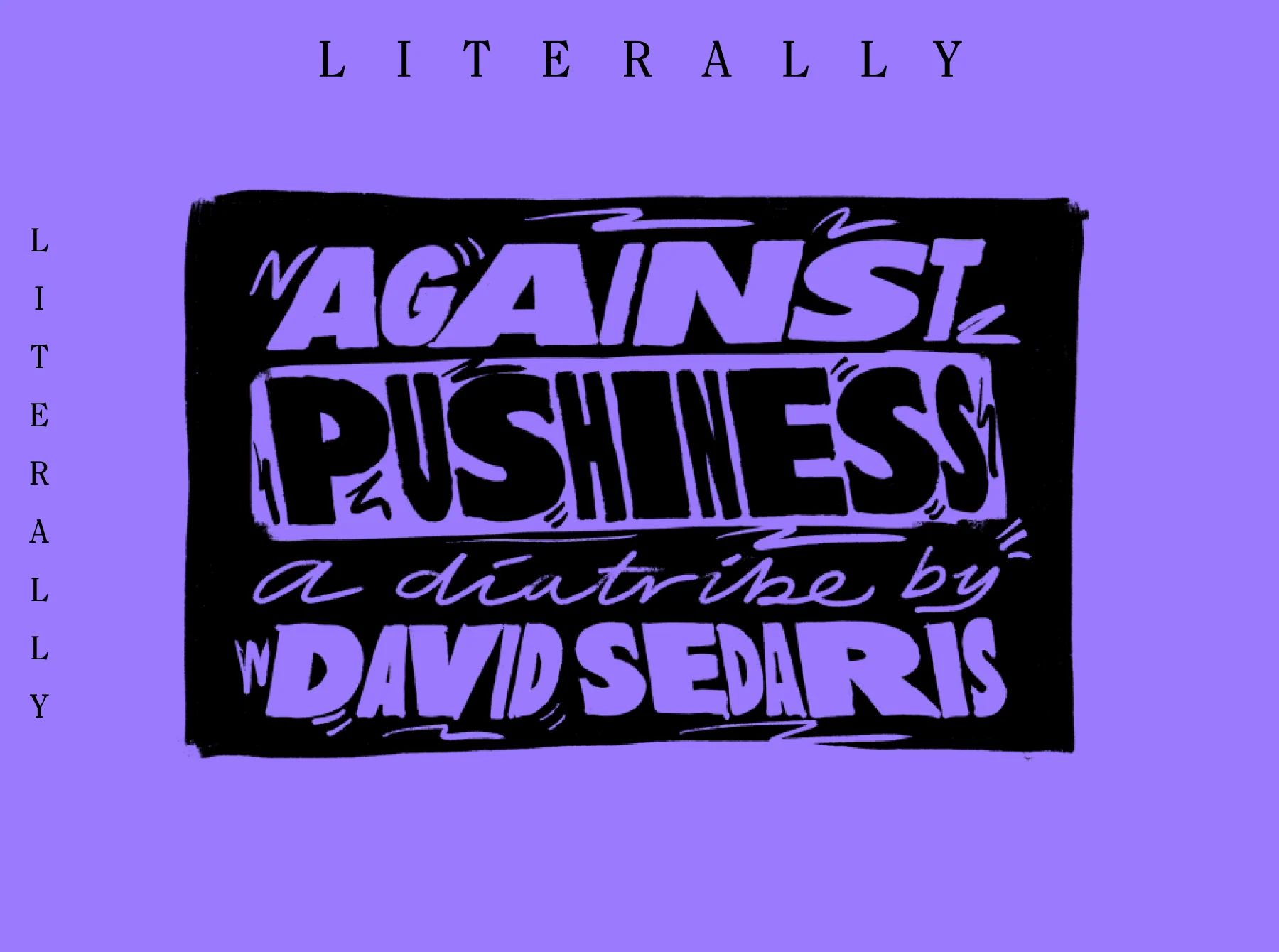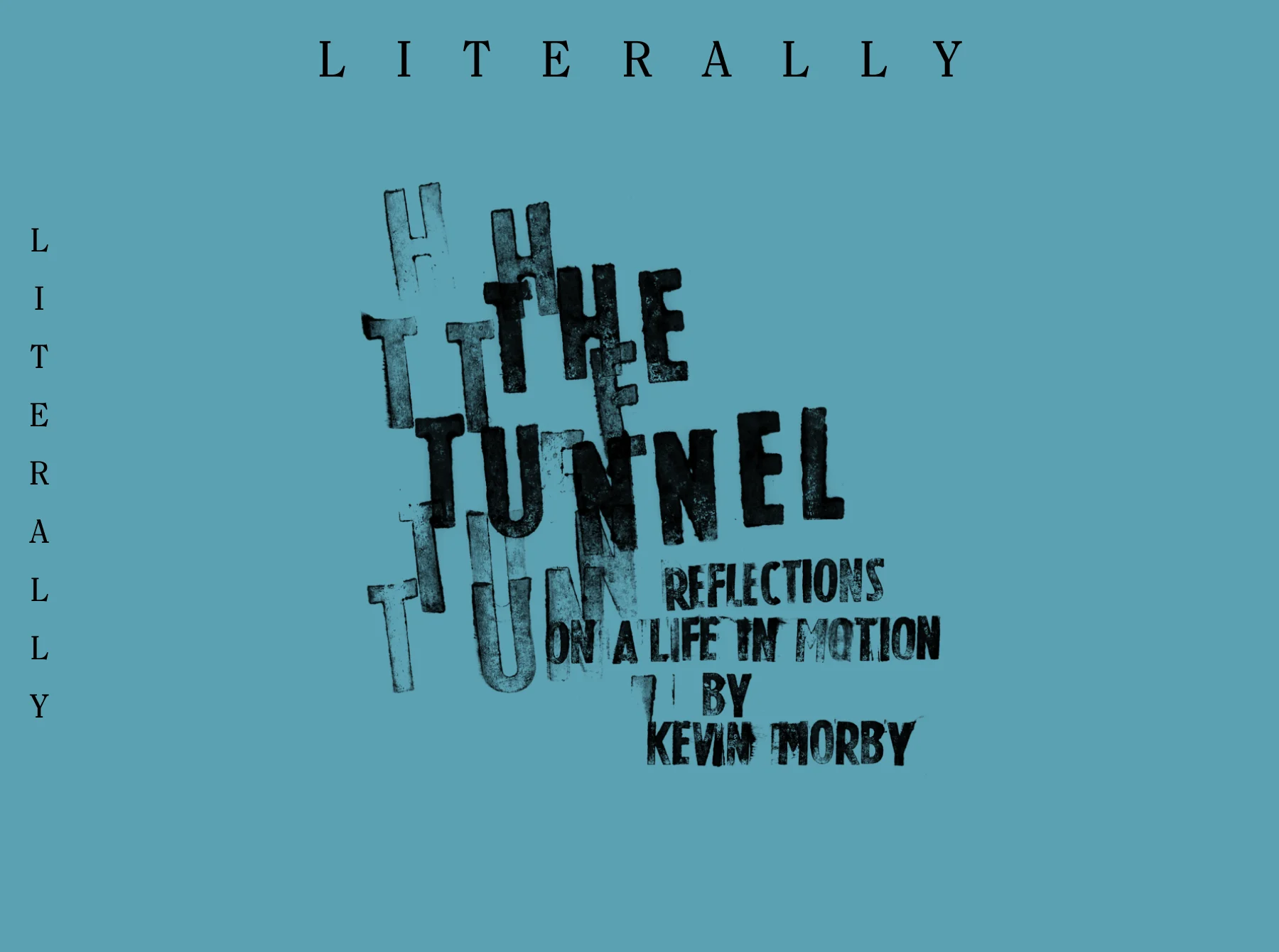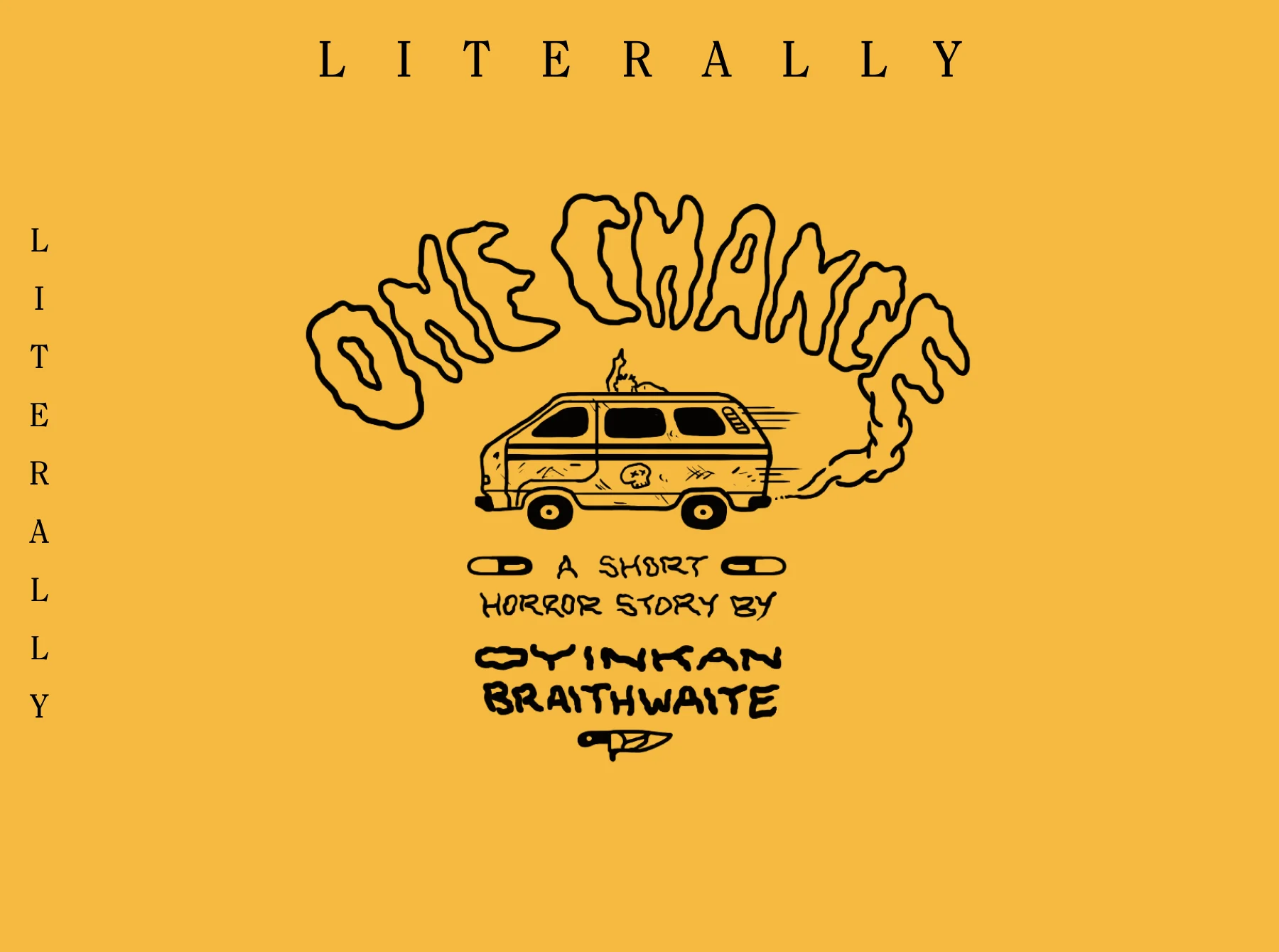

Elle checks her boarding pass again, but there’s no mistake—she’s in the middle seat. She sits reluctantly beside the large man in the window to her right. His brow is beaded with pearls of sweat, though the cabin air is chilly. A sharp, acrid scent comes from him. His broad thigh brushes hers, and she feels the contact long after, the meaty warmth. “Sorry,” he says. His eyes are tired, but kind above his face mask. Elle breathes deeply, looks longingly at the empty aisle seat beside her. Boarding is almost finished. Maybe she’ll be lucky. Maybe it will stay empty, and she can move across. The man’s thigh brushes hers. “Sorry,” he murmurs.
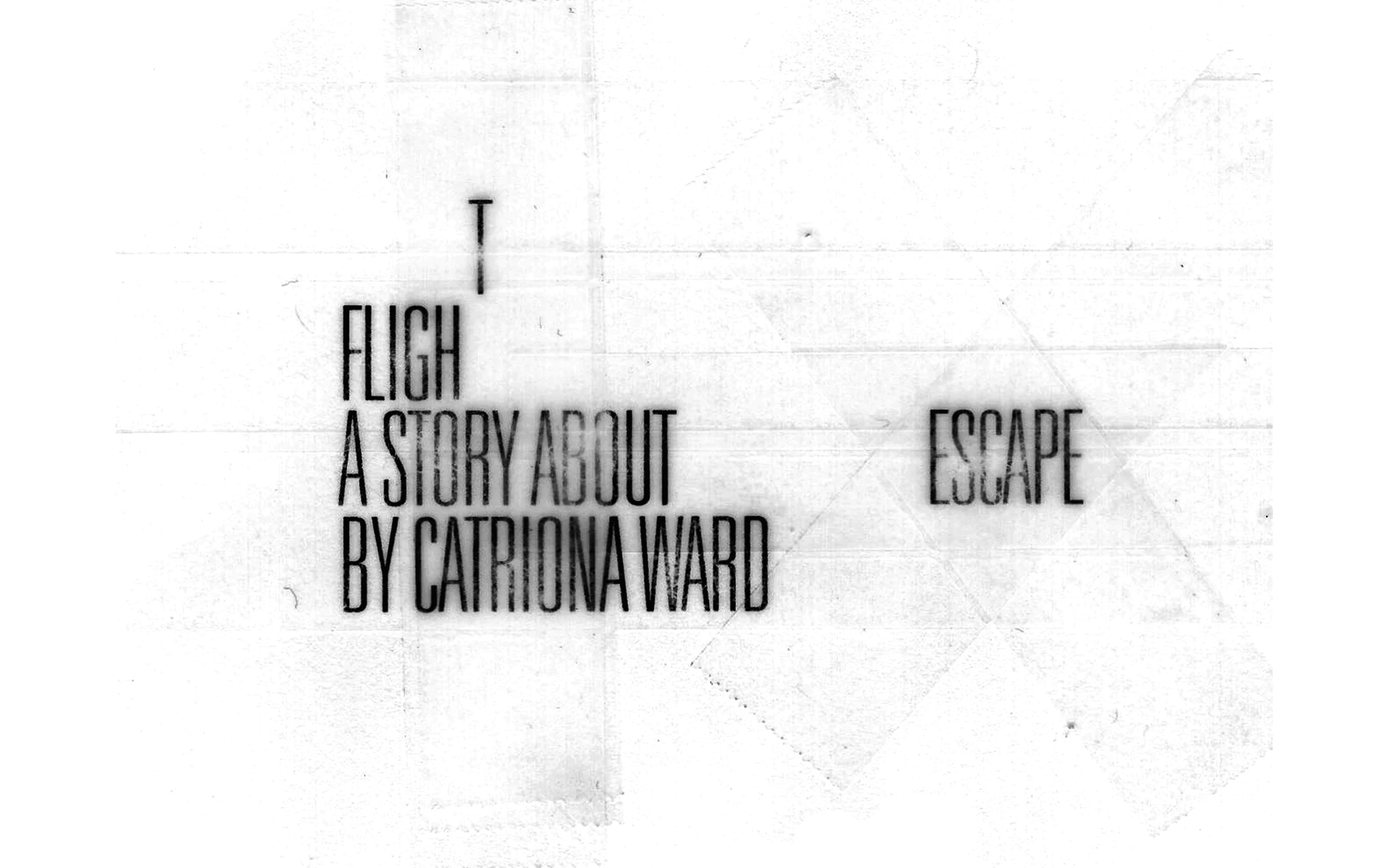
A member of the cabin crew hurries up the aisle. She’s young, red-haired. Freckles dash over her nose, her brow. She looks fresh in the dry air, like she should be walking through a meadow, carrying pails of fresh milk on a yoke across her shoulders. The girl is followed by a slim woman wearing black sunglasses. The woman carries an elegant cane topped with silver—everything about her is elegant, including her black velvet face mask. The narrow slivers of face visible around her glasses and mask are porcelain pale. She probably has money. Only people with money have skin that good.
The flight attendant leads the blind woman down the aisle towards the empty seat beside Elle. Go past, Elle wills them as they draw near. Sit in a row behind. Don’t take my empty seat. But sure enough they come to a halt beside Elle. The red-headed girl murmurs to the woman who gives the seat a smart silent tap with the cane. She sits neatly, in one fluid motion. The flight attendant helps her with the seatbelt. Click. Elle is trapped.
A voice speaks calmly overhead. Boarding is complete. The flight is full.
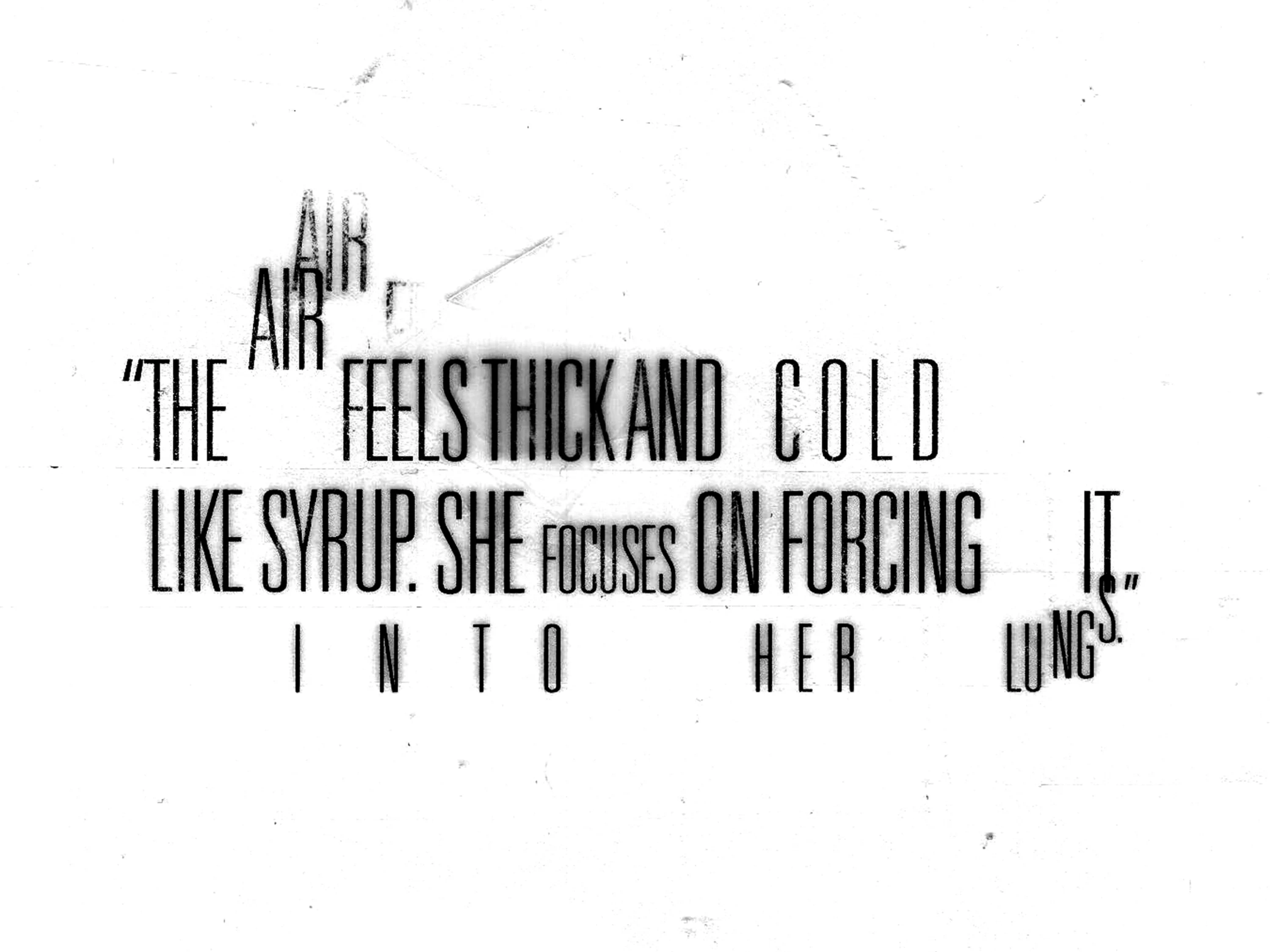
Elle breathes out, becomes as small as she can—tries to steel herself for the constant intimacies that will occur—the brushing of forearms, the scent of strange shampoo, passages glimpsed of someone else’s book, the breathing, in, out, in, out, of two living beings on either side.
Window man folds his arms, tips his head back, and closes his eyes. He’ll sleep during the flight. And the woman can’t watch her, of course. Elle feels a trickle of hope. Maybe this will be OK. She makes sure her laptop is close at hand anyway, stored under the seat in front of her.
She has learned how to hide her panic in these close quarters. A woman breathing too fast, crying, shrinking away from touch—that is alarming to passengers and crew alike. But if a movie plays on the screen in front of her, no one asks questions. Even if it’s a romantic comedy. People cry for all kinds of reasons.
The plane hauls upwards, leaving the ground behind. Elle gasps at the pressure. She sometimes feels like it will kill her, this moment.
She pictures Jo, imagines how she’ll look waiting at arrivals. Her brown eyes scanning the crowds, kind and anxious. She’ll probably have a sign—some sweet hand-made thing. Last time, it was a balloon with Elle’s name on it in silver. The fist in Elle’s chest unclenches somewhat. What’s four and a half hours, she thinks, after all? Nothing. Not even a full working day.
She met Jo online and it was crazy, that first evening—the way they felt. All the clichés became true. It was like ocean breakers, fireworks on a dark night. And pounding panic came with it, too, because Jo was moving to Austin the following week. She had no furniture in her apartment except a bed, which gave Elle an unreal feeling—like Jo had already left and this was just a memory.
They agreed to try long distance. It would be tough, but it might work. Elle will make it work because she can’t give Jo up. Jo is the first person in whose presence she doesn’t feel alone. Whose touch she can bear, when the red dreams come. Elle has told Jo everything. Most of it, anyway.
The red-headed milkmaid flight attendant is back. She leans confidentially over the elegant woman. She must have pushed the call button.
“Water.” The blind woman’s voice is low and rich, and Elle is startled out of her warm reverie. She glances over without meaning to, and she sees it. The pink cavern of the woman’s ear is inches from her eyes. Beneath, instead of the usual soft round pink pad, her earlobe is neatly split in two. Time and space rearrange. It can’t be Roarke, but it is.
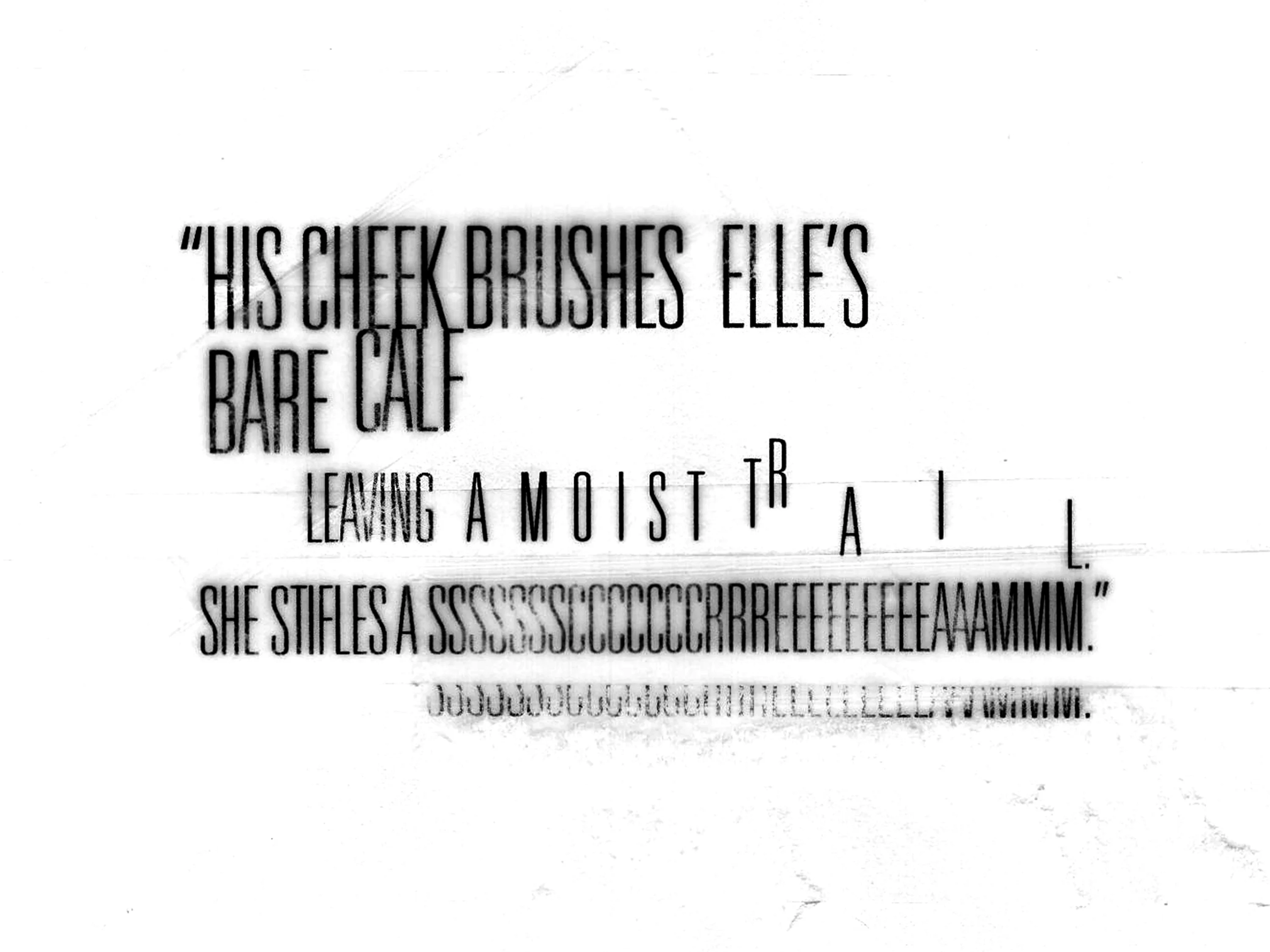
Like the tongue of a snake, Elle used to think as it hung in front of her. She’s hurtled back to the pain, the trembling, heavy breath on her face. How many times did she focus on that earlobe, waiting for it to be over? Breathe, she thinks. Breathe. It can’t really be her. In the same moment Elle thinks, how did she go blind? And get so thin? She quickly flicks her glance forward once more. People can feel a gaze on them, even if they can’t see. Elle can taste her heart in the back of her throat. The air feels thick and cold like syrup. She focuses on forcing it into her lungs.
Beside her, the woman sips her water. In the corner of her eye Elle sees her lips pursed in that familiar disapproving way on the sharp plastic rim of the cup. She always drank like that, as though the act of it revolted her. Elle remembers those lips drawn back in a grimace of pleasure, and shivers. Out of habit she checks for sharp things around her, slips her pen deeper into her pocket—she knows Roarke will use any object for a weapon. Elle can already imagine the nib of the fountain pen in her shoulder, the sucking sound as her flesh gives.
“Excuse me.” Roarke’s voice. Again, the sound of it strips back the years. It’s her. How could Elle have doubted it? “Can you see my purse? I think I dropped it.” Her voice is too deep. And is there a trace of an accent? But people can disguise their voices.
Elle can see the purse under the seat in front of her. The cover has a pattern of bright blue daisies on it.
“Excuse me?” the woman says again. Elle is transfixed by fear. If she replies, Roarke will recognize her. The other senses are heightened by blindness, she heard that somewhere before, she’s sure. “Excuse me?”
The sweaty man looks at Elle with a combination of bemusement and horror. What kind of person won’t give a blind woman her purse? “It’s right there,” he says. “By your feet.”
But Elle can’t move or speak.
Window man bends with a grunting effort. His cheek brushes Elle’s bare calf, leaving a moist trail. She stifles a scream. He picks the purse up delicately, as if unwilling to leave fingerprints. “Here you go.” He passes the purse back, reaching across Elle. The daisies glare like angry faces.
But Roarke always hated daisies. Elle hears Roarke’s voice again, in her mind. Daisies are the commoner of the flower world. It’s not like this woman’s voice. And now Elle sees—the woman’s ear is split, true, but it’s different. The lobe is smaller, the division shallow, not the long flickering snake tongue Elle recalls.
Relief rushes in. It’s not her after all. When she saw the ear it conjured up other similarities, made the voice sound similar. It’s the flight, the tension, the anticipation of seeing Jo. Strong feeling always opens these doors in her, to the dangerous past.
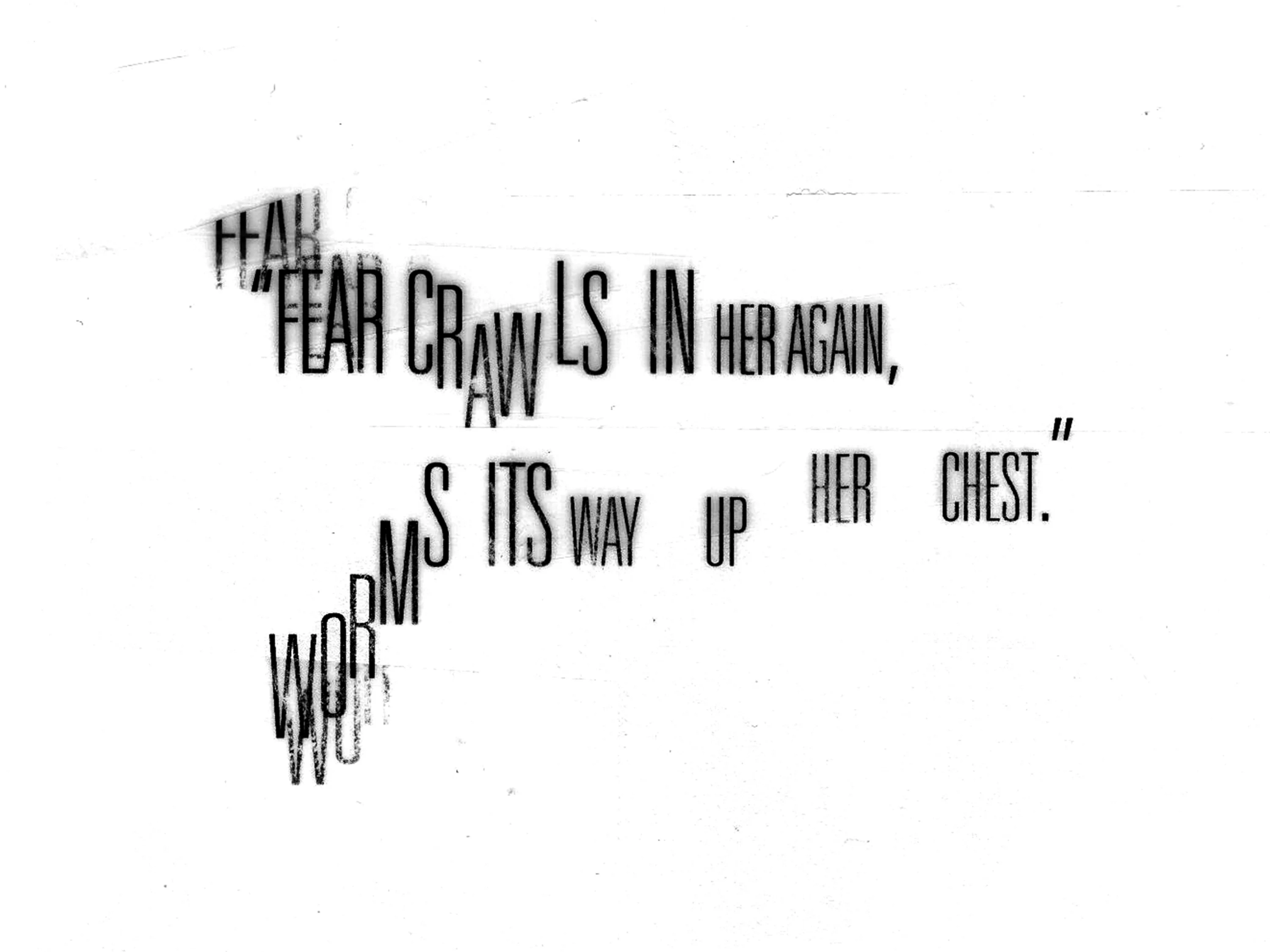
It’s hard to imagine she could mistake someone else for Roarke, even years later—her scent, the terror. Roarke and Elle were together four years and Elle always tries to remember that there was love, before the cat came. That’s what Elle called the cruelty—the cat—because it struck without warning like a claw raking across her face. Sometimes months went by, and it stayed away. Then, as soon as she relaxed her guard and felt safe, the cat struck again. The exacto knife. Elle dreaded it. She knew where Roarke hid it—under the cutlery tray in the kitchen drawer. She could feel it there gleaming, every time she fetched a fork.
Sometimes while it was happening Elle felt she could even see the cat, one of those hairless ones that looks like a starving baby, eyes pits of pale green, hungry mouth yowling wide, lined with needle teeth. The red dreams are all about the cat.
It’s easy to say, leave. Tell someone. Go to the cops. But the cat always made sure that never happened. Until one day, Elle woke up and Roarke was gone with all her stuff. Even the exacto knife was gone from its hiding place beneath the forks. Elle was free at last. But some damage can’t be undone. Cats have nine lives, or so they say. Even after Roarke left, Elle’s brain was messed up by it all. She missed her. Maybe even still does.
The woman turns her head and looks at Elle. In the reflective surface of her glasses Elle sees herself—two Elles, trapped in darkness. She is being studied. Fear crawls in her again, worms its way up her chest. In horror Elle realizes that the woman has been pretending—she is not blind, not at all.
Elle feels it—she is about to lose control. So she opens her laptop and starts a movie. She puts her headphones in, but mutes the sound. Now she seems deaf to everything around her, but she’s not. Two can play at that game. Beside her, the woman’s head tips onto her shoulder. She seems to be falling asleep. But her metallic insect eyes regard Elle, who sits upright, stiff as a board.
Elle springs awake. How long did she sleep? Her mouth is an inch from the woman’s shoulder as though about to kiss. The girl with red hair bends over the woman. She must have pressed the call button again.
“Restroom,” Roarke or not-Roarke murmurs to the girl, who takes her arm and leads her away, up the aisle. The sudden access of freedom on Elle’s left side is like a breeze. Window man taps her shoulder, and Elle feels it reverberate right through her body, like she’s a plucked string. He motions with a finger. He wants to get out. His eyes are not so kind now, after the thing with the purse.
“Might as well all go at once, huh?” Nausea sweeps through Elle at the intimacy of it. She works her way out of the seats. He ambles towards the front of the plane, so Elle goes quickly to the back, heart pounding. She locks herself in the cubicle and shakes. She can hear the cabin crew talking outside the door. She can hear them as well as if they stood right beside her. In here even doors provide only the illusion of privacy.
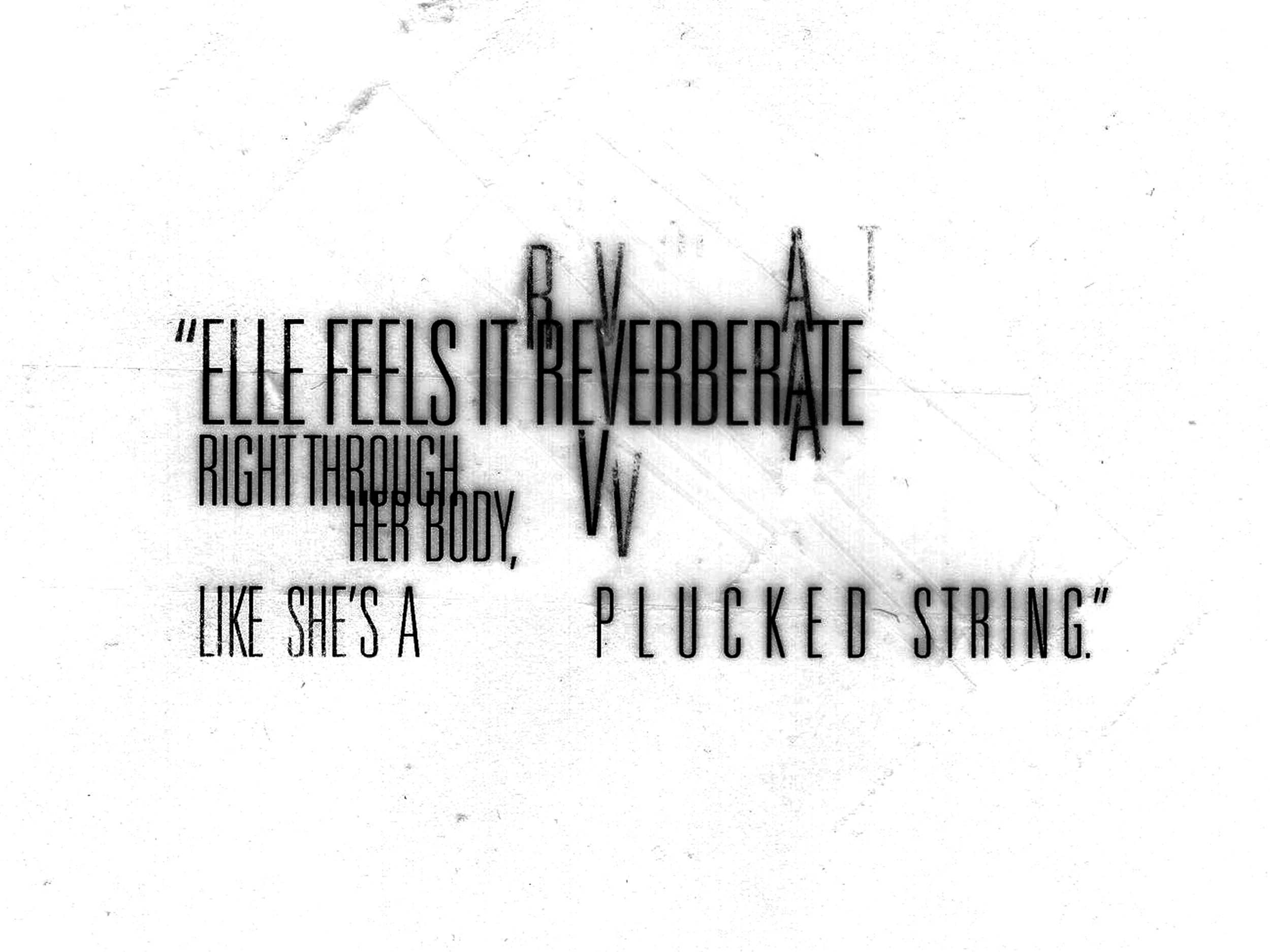
The red-headed milkmaid says, “She asked to be seated there. Said she especially wanted it. Goodness knows why.”
“Something off about her,” a male voice says. “That ear is creepy.”
In the bathroom Elle clenches her fists to stop the trembling. How would Roarke know that Elle was on this flight, or where her seat was? But Roarke always had this power over people. They are drawn to her mystery. She could always get things other people can’t.
It’s Roarke. Elle has been right all along. She should have trusted her instincts.
“She just pressed the restroom call button,” the girl says. “I’d better go walk her back to her seat.” Elle opens the bathroom door. “I have a bad back,” she says to the man. “I can’t keep getting in and out of the middle seat. Are there any others free?”
“No, ma’m,” he says, suddenly cold. He has enough problems.
“Please,” says Elle. “Please…”
“The flight is full, ma’m. Please return to your seat. We’ll be landing soon.”
Elle hurries. She slips into her seat just as Roarke comes up the aisle towards her.
She feels the descent in her blood and the plane touches down like a song. Cabin lights brighten, a quiet ding releases everyone in an eager clatter of seatbelts. Elle shuffles down the narrow aisle towards the exit. Off the plane. Roarke’s neck is right in front of her, pale and elegant.
In the terminal Elle hurries past her, not turning to look. Elle didn’t check a bag, hopefully Roarke did, and Elle can get Jo out of the airport and into the car before Roarke emerges from baggage claim. Whatever Roarke wants—a confrontation, or just to mess with Elle, hear the fear in her voice, maybe—Elle will prevent it. The cat won’t get me, she thinks, defiant. Never again. She breaks into a run.

She spots Jo easily among the masked faces. Jo holds a geranium in a pot, a shout of crimson against the gray hall. Golden letters are stuck into the earth around the plant, spelling Elle’s name. Love burns in Elle. It’s beautiful and simple—so very Jo.
“Hi,” Elle whispers, breathing the scent of her. Jo’s dark hair strokes her cheek.
“How was the flight?”
“Let’s talk in the car.” She has to get Jo out of here.
The glass doors whisper open, warm night air strokes Elle’s face, lifting the airplane chill from her skin.
The blind woman strides past, laughing, surrounded by three clamoring children and a man who is presumably her husband. She tears off her mask with a whoof sound of relief. She has a homely, square face, not at all like Roarke’s.
Elle stops and stares. She watches the woman stride into the distance. She starts to laugh, too.
“What is it?” Jo says.
“I’m happy to see you,” Elle says, truthfully.
The cat that lives in Elle hasn’t woken since they’ve been together. Elle still feels it stir when she goes to places where bodies are gathered close together—live music, airplanes. The plump stink of it all, the rustle and sigh of clothing, flesh brushing flesh—at such times she feels the claws flex, one two, one two, sharp points ready to pierce.
Sometimes she sees Roarke in other women’s faces. Roarke, the first, the one who woke it up. But Elle breathes, sometimes puts on a movie, and it goes away again. Jo has fixed her. Roarke is long gone into the past and Jo need never know what Elle was, once. How she liked to see the red life run out of narrow cuts—how she marked Roarke’s ear. The stainless steel exacto knife slipped through the lobe like butter. “You’re mine,” she whispered to Roarke, knowing it was true. “I mark you as mine.” They were bound together forever by deep things. The blood smelled like tin, sticky on her hands.
Elle shakes herself and tucks Jo’s arm in hers. It will be OK, all that is in the past. She can be happy, after all. The cat will stay in the red dreams where it belongs and she won’t need to do those things again. Not to Jo. Never to Jo. Even demons age and dwindle.
Together, they go into the night.

Catriona Ward was born in Washington, DC and grew up in the United States, Kenya, Madagascar, Yemen, and Morocco. She read English at St Edmund Hall, Oxford and is a graduate of the Creative Writing MA at the University of East Anglia. Her recent gothic thriller The Last House on Needless Street was highly-praised by Stephen King and is a Times Book of the Month, Observer Book of the Month and a Times bestseller. Catriona’s debut Rawblood also won the 2016 August Derleth, making her the only woman to have won the prize twice. Her short stories have appeared in numerous anthologies and shortlisted for various prizes. She lives in London and Devon.
If you enjoyed this story, Catriona recommends you try the short story Where are You Going, Where Have You Been? by Joyce Carol Oates. Catriona says, “It is possibly the most frightening piece of fiction in existence.” She also recommends the novel We Have Always Lived in the Castle by Shirley Jackson (“No one does anarchic antiheroines like Shirley Jackson,” Catriona says,” and Merricat Blackwood is one of the best.“) Catriona also suggests you get your hands on the short story collection Get in Trouble by Kelly Link. “When you finish reading,” Catriona says, “it’s the so-called ‘real’ world that seems insubstantial.”
Literally is WePresent’s slowly expanding library of written commissions by some of the best writers in the world. The hand-drawn typography on this page was created by Chris Ashworth.


